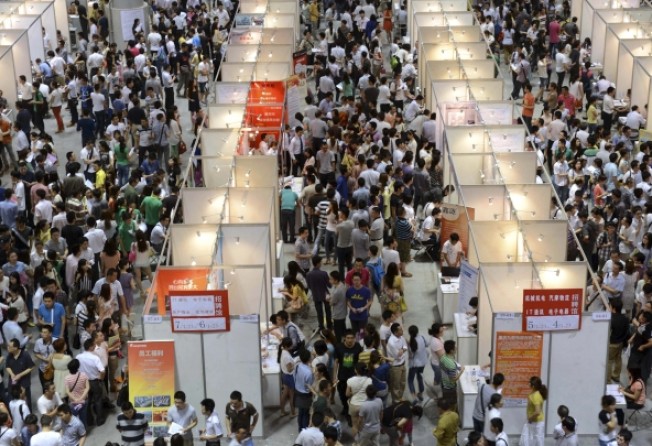China’s high employment levels: adapting their workforce to a fast-changing market

China’s quickly evolving job market is booming and the results of Antal’s 2013 Q2 employment survey on various companies reflect an intent on increasing work efficiency and discovering fresh talent.
In the latest ‘Global Snapshot’ survey, 10,000 organisations in Europe, Africa, India, China and the USA were asked whether they were currently hiring or firing at professional and managerial level.
The survey then went on to identify if businesses planned to do so in the coming quarter.
The results for China were very positive, with a massive 75 per cent of Chinese employers recruiting or replacing staff at senior levels this quarter and 74 per cent planning to hire next quarter, in stark contrast to only 54 per cent expecting to hire in the Q1 edition of the survey.
This demonstrates a significant increase in hiring confidence for replacement and growth positions, as employers clearly defined their intentions and goals for the year.
However, with such an active recruitment market, there was also an increase in the number of companies firing employees.
Consistently high recruitment growth combined with increased labour costs has made employee performance as important as ever, and subsequently replacement recruitment is increasing.
During this quarter, the number of businesses firing staff rose from 14 per cent to 26 per cent, and the numbers are expected to continue increasing over the next three months.
On average, they remain 5 per cent higher than that of APAC. However, this should only be considered in tandem with similarly high hiring levels.
According to James Darlington, head of Asia at Antal International, “there is an increase in cautiousness among job seekers and employers which, together with a changing economy and the necessity for more adapted profiles, explains high recruitment and lay-off rates.”
In a globally stabilised job market, employers prefer higher quality talent, rather than higher quantities.
Furthermore, in many multinational corporations (MNCs), the repatriation of foreigners holding management positions is a significant phenomenon, and many businesses have not found local replacements yet, meaning employee quality is of the utmost importance.
Notably, some industries are booming, while others are lagging behind. The nationwide salary increase over the last two years has led to higher disposable incomes, with the performance of consumer-led sectors having benefited the most.
According to the survey, this quarter’s hiring champions were as follows: the automotive industry (92 per cent), retail & luxury goods (91 per cent), and health care (88 per cent).
Interestingly, the health care industry plans to fire 27 per cent of its employees this quarter, followed by the automotive industry (20 per cent) and luxury goods (8 per cent).
Clearly, specialists in these fields are highly sought after in the country. Demand in these areas is expected to remain high, with sales and marketing, IT and accounting, and R&D being the most demanded positions.
The automotive and aerospace industry “needs specific technical profiles who are bilingual in English” as well as “[a] high level [of] experienced sales talent, professionals with innovative views of the market and marketing experts with challenging and international vision”.
In the luxury good industry, “employers attach great importance to English skills compared to other professional skills” as many youth brands are booming in Beijing and Shanghai.
Due to a growing economy and “more products [are] produced to satisfy people’s daily lives”, the health care industry is “hiring more staff to support business expansion and the influx of foreign companies [into] China.”
As disposable income continues to rise, it is natural for auto and retail industries to continue performing strongly.
This, combined with persistent stagnancy in European markets, means that the major players in these industries will continue focusing their attention on China, thus leading to potentially increased hiring.
The survey reflects accurately what we see and hear from our clients on a daily basis. The talent war in China is continuing to heat up, with many companies prepared to break budgets or head count freezes to hire top level talent.
However, as the market gains in maturity, both employers and candidates are expected to put more emphasis on training and development rather than salary when negotiating a package.
As the world’s second largest economy and a quickly developing labour market, China is now hiring fewer, but “better” people, with HR managers having a clearer vision of their demands for this year and higher expectations on the talents that will drive their business into this challenging but formidable market.
Author Max Price is a Partner at recruitment firm Antal International China in Beijing.